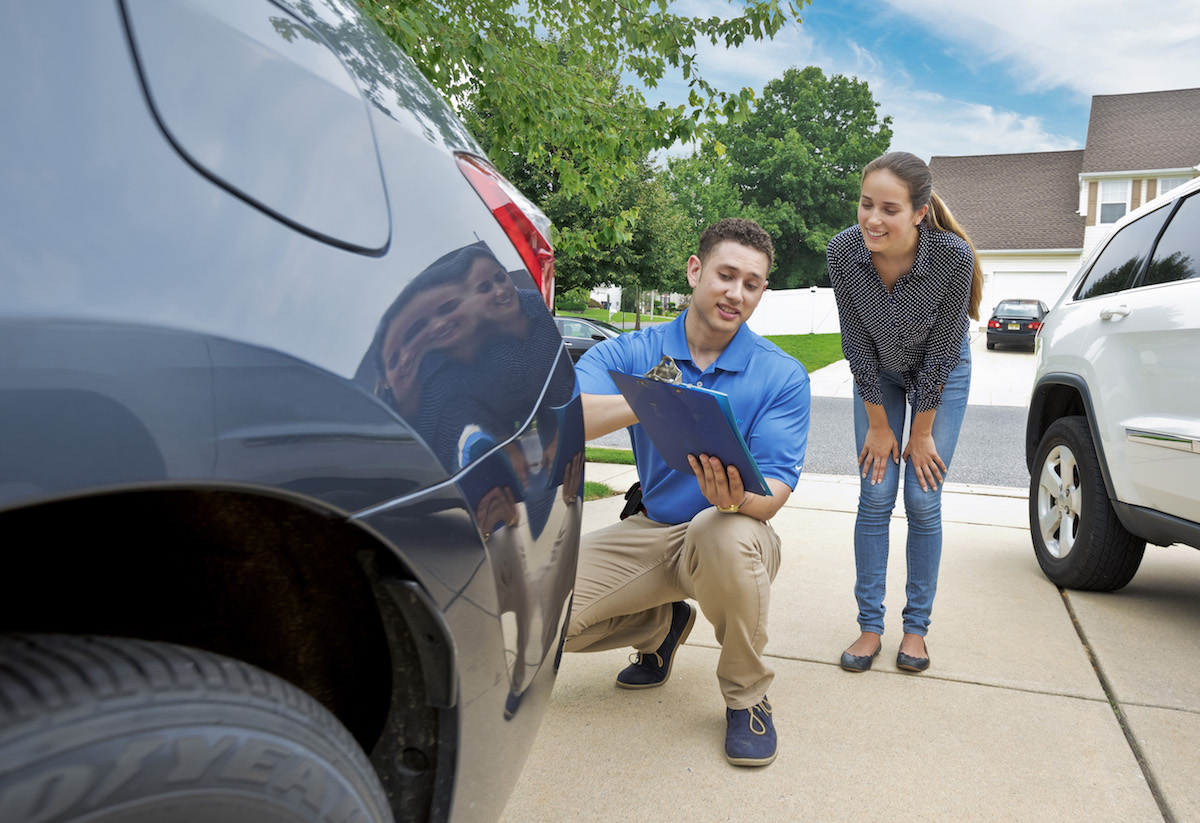Selling your vehicle is often a bittersweet moment. On one hand, you're probably moving on to a newer car (yay!) – but on the other hand, you're moving on from something you may have developed an emotional attachment to. And that's the part that can make things tricky.
In some form or another, we all grow to have a sentimental bond to our current car – even if we are searching for a new one. As a result, our ability to judge the actual market value of our own used car can be skewed. Frequently, emotion can cause sellers to assume their vehicle is worth more than the market is willing to pay. The best way to approach this is to determine your car's worth using a few guidelines that will help you get a fair price, regardless of the method of sale.
Types of car values
Before we discuss calculating a car's value, it's important to note the different types of estimates that can be provided during your search process. There are three common values that an estimator will be able to supply for your car:
Dealer Resale Value: This is the price that directly reflects the market value of a vehicle and usually represents the highest estimated value
Trade-in Value: The price a dealer will offer for a driver's vehicle if they apply the proceeds from the sale of this vehicle toward their next car out of the dealership's inventory
Private Party Value: The price a driver can expect to sell their used vehicle for if they sell it directly to another consumer – this value often lies between wholesale value and retail value
How is a used car's value calculated?
Appraisers and online appraisal calculators use a wide range of factors to determine the value of a used car. However, of the elements in that list, there are seven that carry the most weight when calculating the value of a vehicle:
- Make, model, and year of the vehicle
- Estimated values of similar vehicles on the market
- Geographic market values (prices can be dependent on the cost of living in each market)
- Mileage on the vehicle
- The vehicle's condition
- Additional features or technology components
- Color
In addition to these seven factors, you should also seek to understand your vehicle's history – anything from buyer history to accident and maintenance reports. These things can contribute to your car's depreciation, leaving you with a lower value than anticipated.
Using a Car Value Estimator
Twenty years ago, if you wanted a car expert to appraise your vehicle, you needed to go out of your way to do so. This required setting up an appointment with that expert or taking it to a local dealership, which would be able to handle the task for you.
Today, you can have an appraisal done from the comfort of your couch. A car value estimator (also known as an online appraisal tool) allows you to provide information about your vehicle, and the estimator will do the rest.
The key to using these tools? Be brutally honest with yourself about the condition of your vehicle. Eventually, it will need to be appraised by the buyer, who will likely be examining it with a sharper eye. If you want an appraisal that will help negotiations, you need to be realistic versus "optimistic" in your assessment.
Considering all the above factors, most estimators will offer you two values for your car: a sale value and a trade-in value. Once you receive your estimate, the next step is to determine the best way to sell your vehicle.
What to Do Following an Appraisal
Following the appraisal process, it's time to decide your method of sale and move ahead quickly.
Due to the nature of vehicle depreciation, the value you established during your appraisal could change within a month or, in some cases, even a week. Age and mileage both play a crucial role in how much a vehicle is worth. By adding 1,000 miles to your car with a road trip or your daily commute to work, your car's value can drop significantly from what it was before that trip. The same can be said about an accident; even a minor fender bender can reduce your car's value by hundreds or thousands of dollars.
There are a few options to consider once you have your appraisal:
1. Sell to a private party: When you've found a buyer, finalize the sale in person rather than over the internet. If your appraisal is more than 30 days old, they may ask to have the vehicle appraised again, which can affect negotiations – because of that, you'll want to have an up-to-date appraisal when you start sale discussions.
2. Trade in your vehicle: Because dealerships today tend to offer a car value estimator on their websites, they'll also give you a deadline to redeem their appraised online value on the car. In many cases, they will have a team member appraise the vehicle in person when you bring it to the dealership to confirm the information you provided was accurate. Be sure to have your vehicle's history on hand and any other helpful info needed to get your appraisal.
3. Refinance your vehicle: If you decide it makes more sense to keep your vehicle, having an up-to-date appraisal can go a long way in helping you refinance for a better deal. In cases where your car's value is higher than when it was originally sold to you, the odds of your getting more favorable payment terms increase.
Keep this information in mind when it's time to list your vehicle to make the most of its value. These tips can go a long way in securing a fair price that you can put toward your upgraded vehicle.
Use the ALGO appraisal tool to find the estimated value of your car.
You may also like...
- by ALGO Staff — Jun 19



